ENVIRONMENT | NATURE | WORKING TOGETHER
Taking Care of Our Planet Begins With Helping Our Common Ground
A powerful must-watch documentary
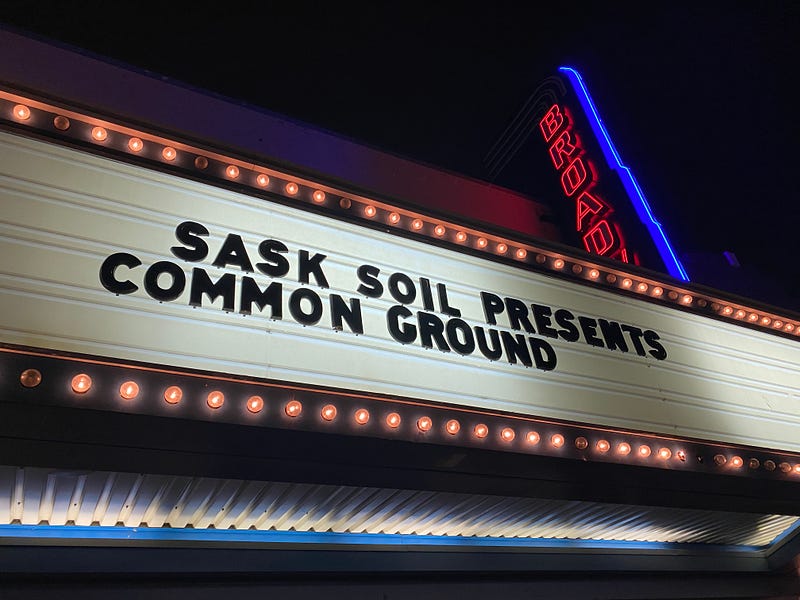
My partner and I are currently staying with his Aunt on a farm near Saskatoon, Saskatchewan. Saskatchewan is one of Canada’s prairie provinces and is dubbed the ‘bread basket of Canada’ due to its huge production of grains and the vast number of farmers. Truly, it is this province that feeds the most Canadians.
As some may know, Chris and I are avid gardeners and we had a beautiful garden oasis where we last lived our static life on the West Coast of Canada. We made our own healthy and fertile soil and grew some pretty amazing vegetables if I do say so myself.
We were last there in 2017 and have now experienced 6 years of full-time travel away from it.
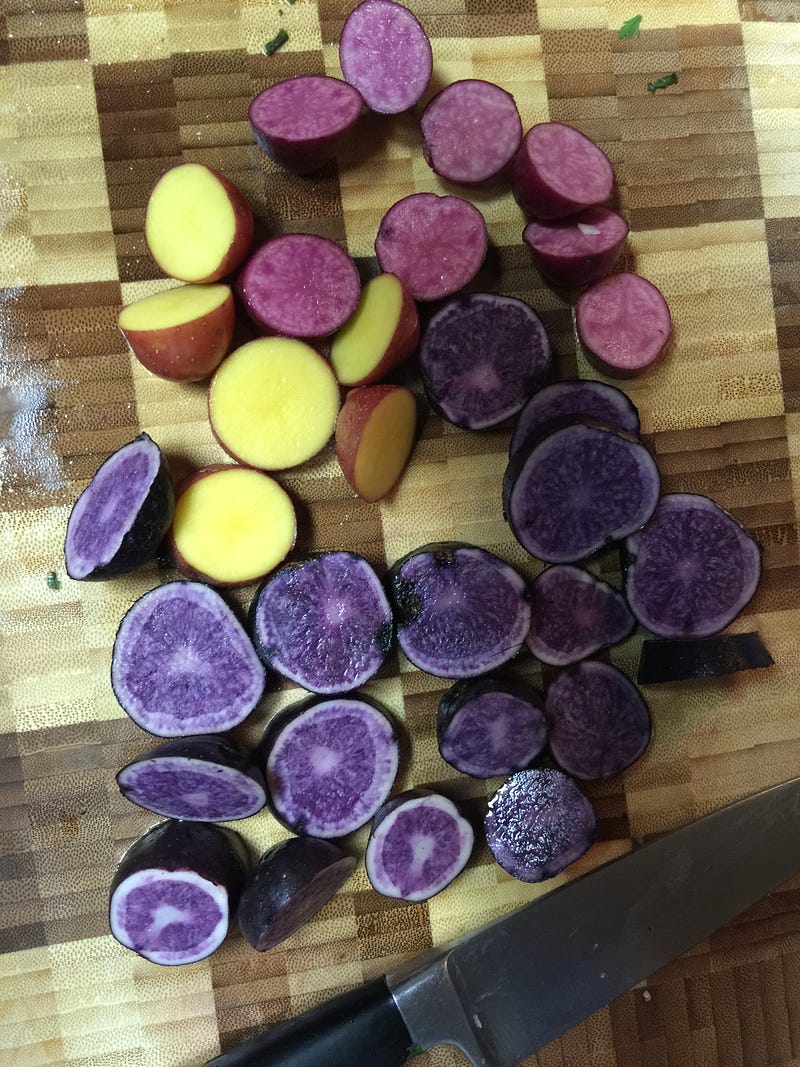
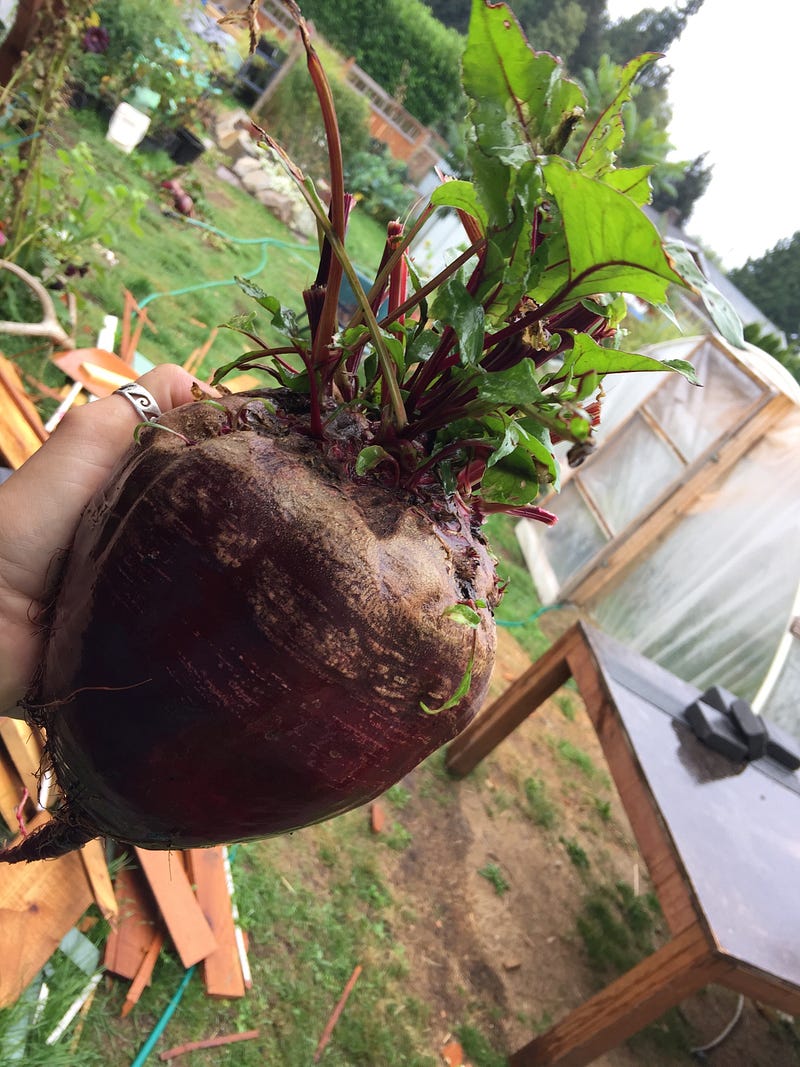

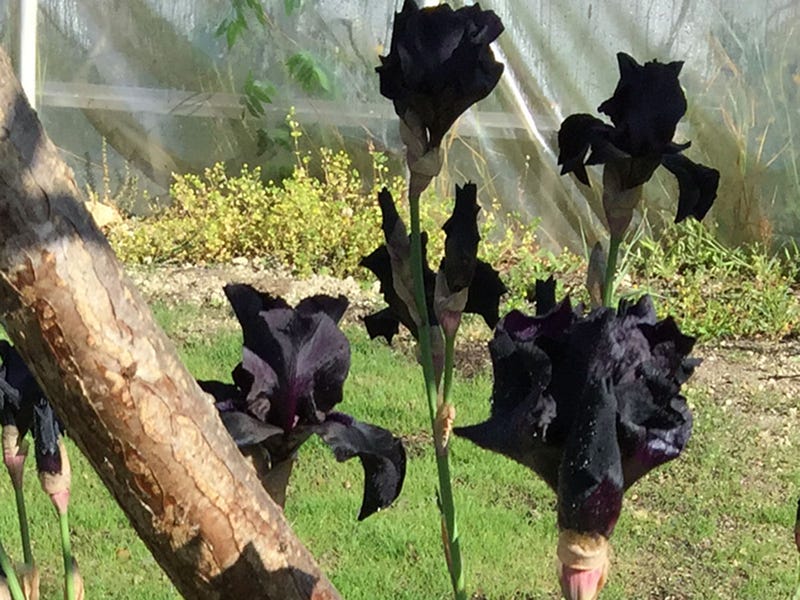

If anyone were to ask us what we miss most about our static life, we would both say ‘our garden’ immediately. So, it is no surprise that wherever we travel to, if given the opportunity, we find ourselves gardening. Most times we don’t get to see the fruits of our labors, so to speak, but that doesn’t matter. To us, it is the physical act of planting things and playing in the soil that brings us the most joy. It is a gentle knowing that even if we don’t get to enjoy it, somebody does. And it is the assurance that no matter what, we are doing something good for our planet.
We had our most significant gardening experience when we stayed in a Ugandan village for 7 months back in 2021. We didn’t go there meaning to work in gardens with the villagers, we went there to paint a mural for one of the guesthouses. It’s a bit of a long story, and I don’t want to get off topic, but over our time spent there, the one thing we realized the most was that they were practicing terrible farming techniques and their topsoil was getting more and more depleted and dry.
We helped the village in a few different ways while we were there, but the thing that I am the most proud of is that we taught them how to build soil. And we didn’t just do a weekend workshop like many before us had — we stayed for 7 months to make damn sure we took them through the process numerous times, so they would truly understand what we were trying to teach them.
We also worked alongside them collecting the ingredients needed for the compost, many times blowing their minds that a ‘white man’ really knew how to work hard.
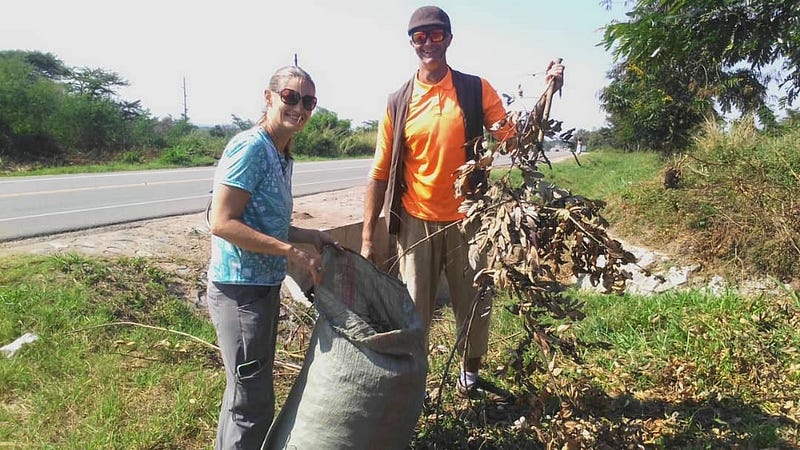
We are most proud of sharing this experience with them because, at the foundation of it all, soil is our most important thing. If we have unhealthy soil, we can’t grow food. If we can’t grow food, then we do not survive.
It is that simple.

To the Ugandans we met, the soil was just that — dirt. It was something that was there, on the ground. There was a gap in understanding that its very health is responsible for growing what we need. Of course, the farmers understood this, but they didn’t understand just how it had been getting depleted due to their terrible farming practices. At least that was our interpretation of the situation.
And let me be clear. These farming practices were taught to them by Europeans, namely the British, back when they were colonized in the mid-1800s. Trying to explain to them that Britain and most of Europe had already decimated their landscapes because of these terrible practices, was like banging our heads against the wall.
But by helping them to understand that they had tools at their disposal, provided for free by Mother Nature, to make healthy soil and grow healthy food, we like to think that we, in some very small way, might have made a difference to that small region of the world.
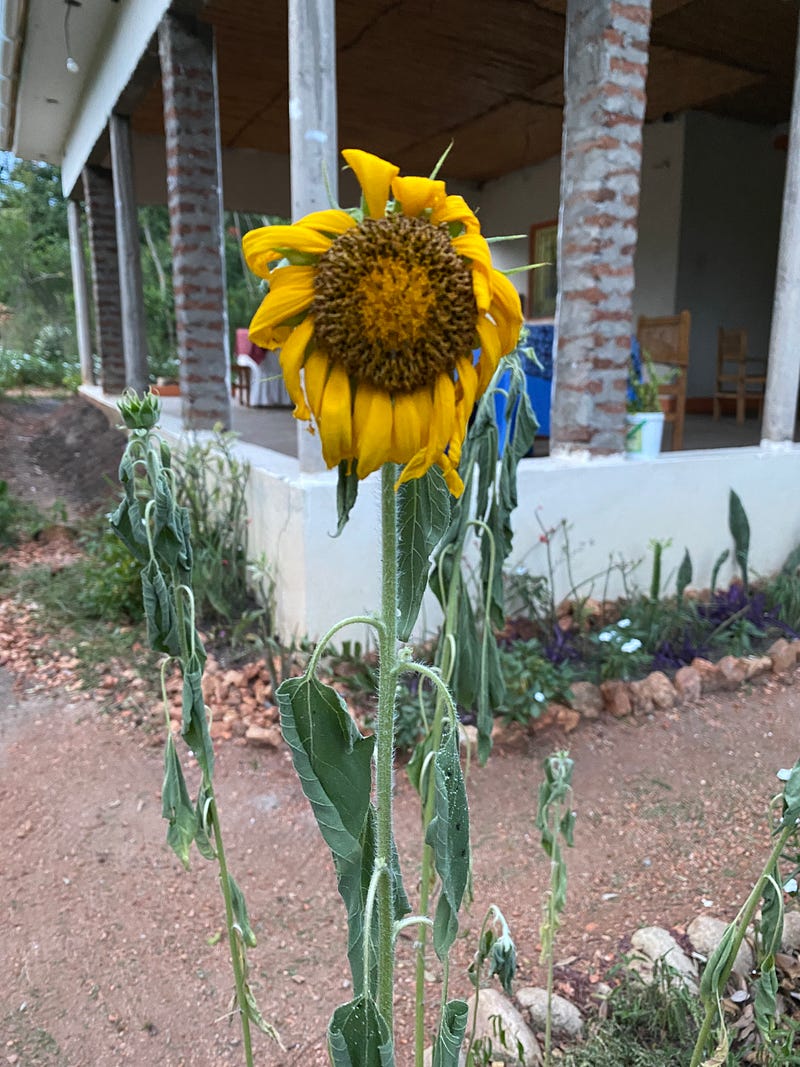
You can imagine my thrill when one evening, a couple of weeks ago, Chris’ Aunt showed me an advertisement for a new documentary called Common Ground. It was a Sunday evening and we were all sitting around her table just chatting.
She leaned across with her phone in hand, “I think this is something that you guys would be interested in.”
Chris came around to my side and we both watched the Common Ground trailer— captivated. We could immediately see that this documentary was right up our alley and we definitely wanted to watch it.
Of course, they had a website address and I immediately looked into seeing how we could see it. We were prepared to pay for it if we could rent it online.
However, I was sad when I saw that it was only being shown in select small theatres around the US. But I surmised that, at some point, it will become more widely available and I would keep my eye on its availability.
Feigning defeat, I put my phone down and declared that it was only showing in the US. Then I think Chris’ Aunt said, “You could Google it in Canada just to see.” Or something like that. It’s a bit of a blur now and I can’t remember how I actually found my way to a page that said, much to my surprise, that the film would be showing in Saskatoon the following Wednesday.
“Wow!” I held my phone in front of me in disbelief, “It’s playing at the Broadway Theatre in Saskatoon in three nights!”
We were overjoyed and couldn’t believe our good fortune.

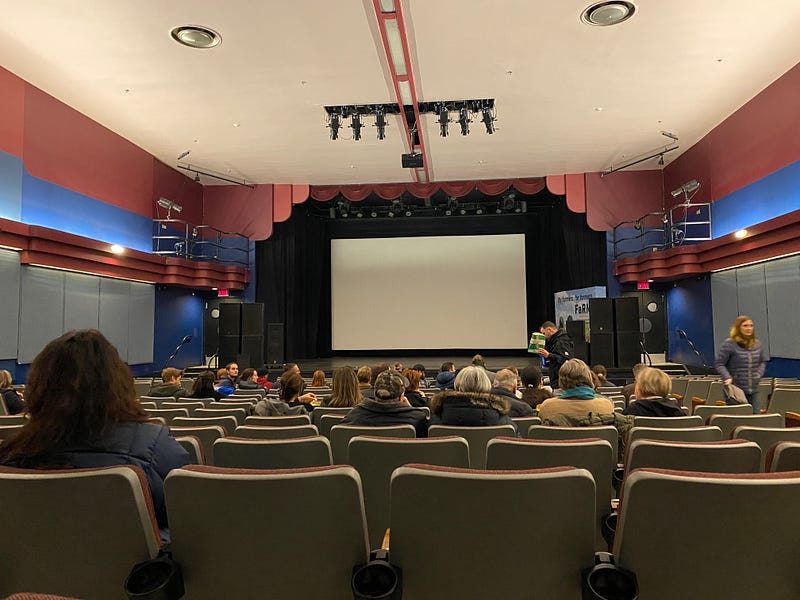
I can’t tell you how good it felt to be a part of this small movement of people who are invested in the health of our soils. As the seats of the theatre filled in, I became giddy with excitement. I was both surprised and inspired by the overall turnout.

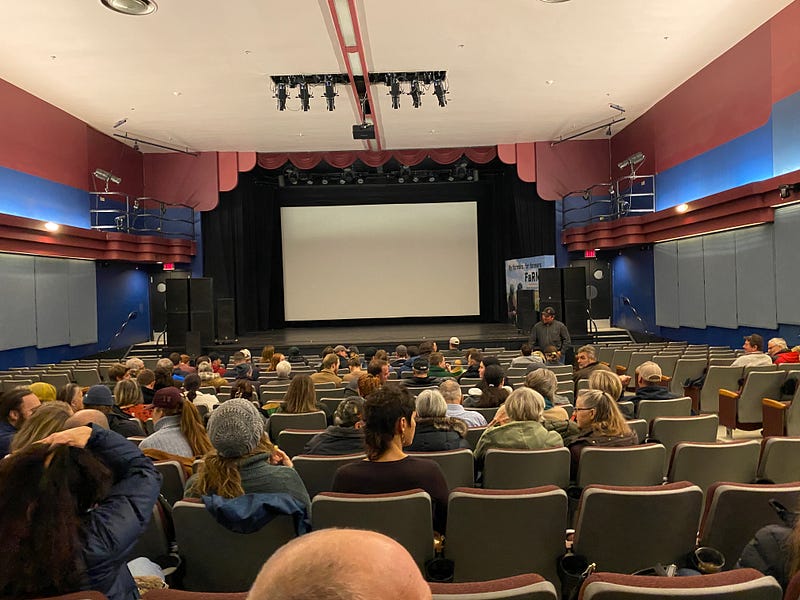
But then it hit me. OF COURSE, these people are invested in learning about their soils. They are farmers! A farmer's life depends on and revolves around one thing only — the health of their soils. If their soils suck, so does their life and livelihood. Which, of course, trickles down to the entire population, eventually. In fact, the high prices of food are an indication that something is surely amiss, even now.
The film's message is simple; If we continue neglecting the health of our soil, our planet will slowly die off, and, eventually, so will we.
We both watched the film — again, we were captivated.
Finally, someone is addressing the root of all of our problems. And it all starts with the soil beneath our feet. Such a simple concept, yet somehow so very complicated.
Winner of the Best Human/Nature award at the Tribeca Film Festival this year, this film doesn’t tell us what to do, it simply shows us. Using a few different case studies from around the US, they show us just how healthy and rich our land can be if we adopt a few basic principles to our farming, even while comparing neighboring properties. This film demonstrates how we can rebuild our soils naturally — using simple tools provided by Mother Nature.
We don’t have to spray pesticides, we don’t have to give plants fertilizer. Nature provides all of the ingredients for us if we can just learn how to use them. Common Ground teaches us this.
I was excited to see a panel of six farmers sit on the stage at the end of the showing to do a Q&A. I giggled at the farmer stereotypes as I gazed upon each of them. Caps, plaid shirts and jeans were certainly the dress code. Yup, these were definitely farmers!
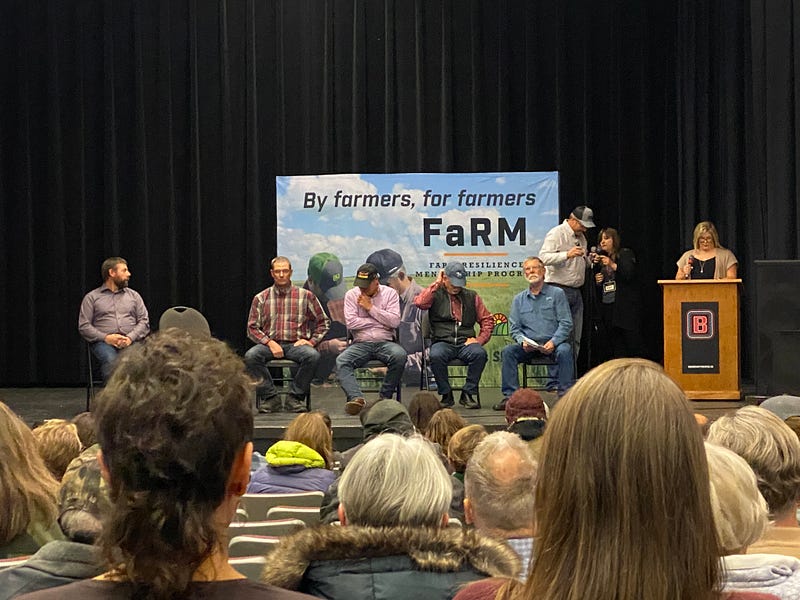
I was even more thrilled when the guy in the purple shirt introduced himself as one of the main characters of the film. Of course, he did look familiar. He had traveled to Saskatoon to attend the showing because it was the first showing in Canada!
Can you imagine our good fortune? What are the chances that we would happen to be in Saskatoon, of all places, just as this film launched and was shown in the very city we find ourselves 40 kilometers away from?
It was also thrilling to see that three of the farmers are Canadian and are currently farming with no pesticides and no fertilizers. Some of them have vastly increased their income by doing so.
Overall, I’m sure you can imagine that we had a wonderful and informative evening watching this film. Not only did we learn more about our topsoils and how to maintain them in a healthy way, we came away excited and inspired about the future of humanity. These are the films that will pave the way for our collective sustainable future.
The principles shared in this film don’t just apply to the farmers, they apply to all of us. We all need to do our part to keep our environment happy and healthy. Without it being in balance, drastic weather patterns and climate emergencies will happen. Everything will be impacted, including us and our lifestyles. Already, I know most of us are feeling the effects of a tired and worn-out Earth. There are things that we can do about it and Common Ground will show you that.
Did you know that you can request Common Ground be shown in your local theatre? Head to the website to learn all of the details. Maybe this film is already being shown near you!
On the off chance that somebody from the film will read this article, I want to say thanks. Thanks for being the changemakers that we need in this world. It takes courage to stand up for what is right, and this truly does affect all of us.

If you like my writing and want to read more, follow me and sign up here to get my articles by email. We would also be happy if you considered leaving me a tip by using the link to Patreon or Ko-Fi below:)
We have been nomadic since 2017! Join our journey by hitting these links:
Website | Instagram | Facebook | LinkedIn| Patreon| YouTube | Medium | Twitter | Ko-Fi | Unsplash
